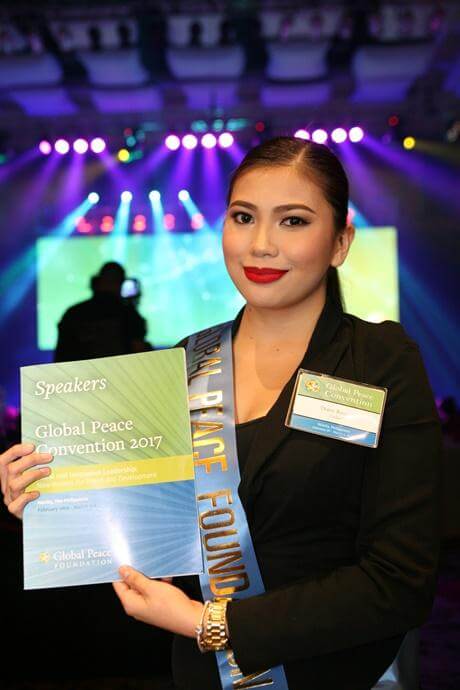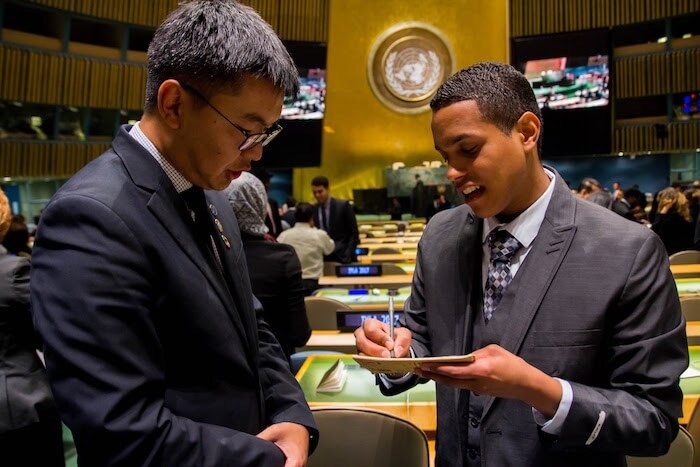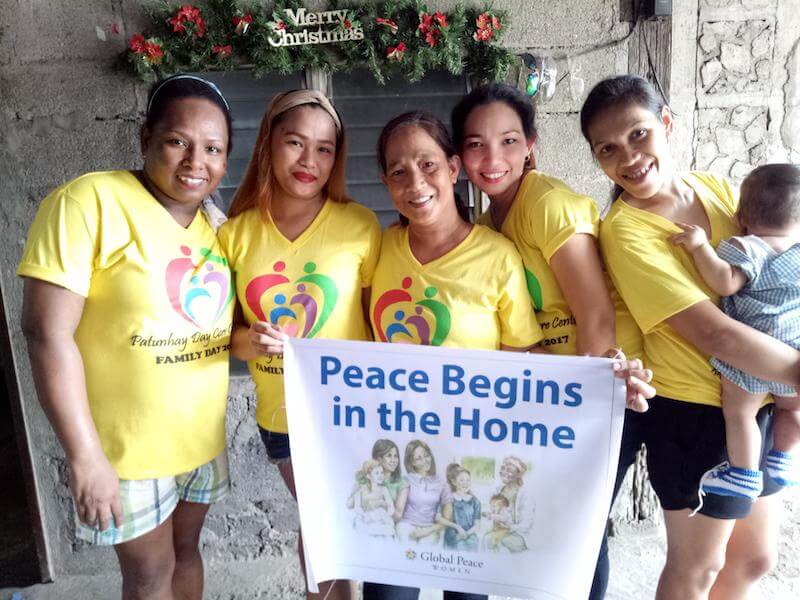“Moral and innovative leadership can tap the wellspring of innate human creativity because as self-governing, responsible and ethical citizens, such leaders are best prepared to address even the most intractable social problems… A moral leader is guided by a common vision that reflects the most fundamental human aspirations, conforms to universal spiritual principles that govern human life, and is committed to advance the greater good before self-interest.” -Dr. Hyun Jin P. Moon
The Global Peace Foundation’s landmark convention in 2017 drew tens of thousands from around the world under the theme “Moral and Innovative Leadership: New Models for Peace and Development.” Leaders from every sector, from over 40 nations and of all ages convened in Manila, Philippines to advance cutting-edged, values-based approaches to seemingly insurmountable challenges facing the global family today.

The 2017 Global Peace Convention gathers thousands of leaders to Manila, the Philippines.
“Moral and Innovative Leadership” is a term coined by Dr. Moon at the 2010 Global Peace Convention in Nairobi, Kenya. The convention drew experts, advocates and government, civil society and faith leaders to address the challenges of identity-based conflict and development. Dr. Moon posited, “I submit to you that the deciding factor at such times is always moral and innovative leadership, on every level.”
“Moral and Innovative leadership” combines two important qualities of leadership. Moral leadership is vision driven and guided by universal principles and shared values. A moral leader always seeks the larger purpose, the greater good of the whole, and upholds the noble qualities of humanity in their leadership. Their moral and ethical foundations guide a morals leader’s perspective, decisions and actions.
Innovative leadership is forward looking, out-of-the-box, and possibility driven. Such leadership inspires people to use their God-given creativity to make advances and transformation in every sector of the human endeavor to challenge obstacles and search out new solutions.
Since Dr. Hyun Jin Preston Moon first coined the term in 2010, the framework of “moral and innovative leadership” has served as the beginning point of numerous successful peacebuilding and development models.
The Global Peace Convention 2017 featured several tracks that explored such developing models and galvanized synergy and partnerships on deeper levels.
The growing partnerships and networks are apparent in the growth and development of new and continued projects in GPF’s local chapters that cover Latin America, North America, South and Southeast Asia, Northeast Asia and Africa.
Here are a few of the innovative models that were highlighted in 2017:
- Building peacebuilding initiatives in hotspots in West and East Africa that engage local faith and community leaders based on shared values to build social cohesion among diverse communities and effectively address identity-based conflict and extremism.
- Working with major faith leaders and practitioners to develop peace building strategies, protect international religious freedoms and build a global ethical framework as the foundation for peaceful and prosperous societies.
- Advancing a grassroots movement for Korean unification through the leadership network of Action for Korea United and the application of a roadmap for unification that is spearheaded by Korea and supported by the international community.
- “Transforming Education” to better prepare students for their future work and family. Together with ministries of education and public and private sector partners, GPF is turning the focus on nurturing the whole child, including their character and creativity competencies.
- The “Peace Begins in the Home International Movement” drew grassroots support for the importance of peaceful homes as the seed of peaceful societies, highlighting the irreplaceable value of women in creating such homes.
- Investing in youth to cultivate moral and innovative leadership qualities through international conferences and assemblies, as well as local service and capacity development programs.
2018 promises exponential development in these and other emerging areas of peace and development based on “moral and innovative leadership” on every level, from the family, to schools, communities, and all the way up to governments and international institutions.


